News & Media
Prioritising the holistic well-being of students
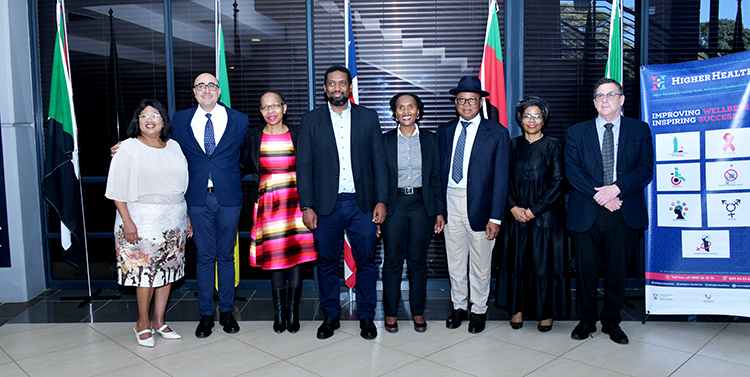
From left: Prof Dipiloane Phutsisi, Higher Health board member; Prof Ramneek Ahluwalia, CEO of Higher Health; Nolwazi Gasa, Deputy Director-General for Planning, Policy and Strategy in the Department of Higher Education, Science and Innovation; the Hon Buti Manamela, Deputy Minister of Higher Education, Science and Innovation; Thembisa Futshane, Deputy Director-General for Community Education and Training in the Department of Higher Education, Science and Innovation; the Hon Cassel Mathale, Deputy Minister of Police; Prof Puleng LenkaBula, Unisa Principal and Vice-Chancellor; and the Hon John Jeffery, Deputy Minister of Justice
Chaired by Professor Puleng LenkaBula, Unisa Principal and Vice-Chancellor, and co-hosted by Unisa and Higher Health, the Gender-Based Violence Technical Task Team (GBV TTT) recently met at the university to discuss a range of issues relating to a zero-tolerance approach by universities to sexual and gender-related misconduct. The task team was formed in 2021, and meets twice a year.
Together with Professor Sibongile Muthwa, the Nelson Mandela University Vice-Chancellor, LenkaBula was appointed earlier this year by Dr Blade Nzimande, Minister of Higher Education, Science and Innovation, to champion the fight against the scourge of gender-based violence and femicide (GBVF) within the higher education sector. This decision was taken in light of incidents of GBV witnessed on campuses. Both women will lead key programmes towards addressing the challenges of GBVF.
The GBV TTT confronts issues pertaining to sexual and gender-related misconduct by providing a safe institutional environment for all post-school education and training (PSET) institutions.
Co-host of the meeting, Higher Health, emerged in 2019 from the Higher Education and Training HIV and AIDS Programme (HEAIDS), which was established in early 2000s. The organisation works in eight key areas to promote the health and well-being of students across South Africa’s 26 public universities, 50 technical and vocational education and training (TVET) colleges, and nine community education and training (CET) colleges. It was established by the then Department of Education and international development partners to reduce the impact of HIV/TB on higher education. Higher Health works with Universities South Africa (USAf) and the South African College and Principals Organisation (SACPO).
In her opening remarks, LenkaBula acknowledged the importance of discussing and implementing initiatives to support the holistic well-being of students in higher education sector.
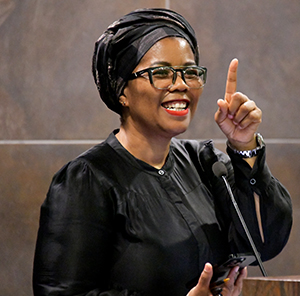
Prof Puleng LenkaBula, Unisa Principal and Vice-Chancellor
‘I am truly grateful to welcome you at a time where the university is celebrating its 150th anniversary,’ said LenkaBula. ‘Unisa is the grandmother of all universities in South Africa and the first university in the world to offer distance education. Unisa initiated an open and distance e-Learning (ODeL) model to ensure that higher education is accessible to everyone.’
Commenting on the necessity of committees in universities to deal with gender injustices, LenkaBula said the GBV TTT is one of the critical platforms in South Africa, especially with the continuing intense levels of GBV in the country. She added: ‘We are aware that if GBV continues relentlessly, the gains made since independence on the empowerment of women and the girl-child will be seriously tampered with.’ LenkaBula explained to the audience that the task team commits to mitigate against GBV. ‘We seek to deliberately stay within the confines of the vision and mission of Higher Health, especially for the holistic health of our female student population in the higher education sector.’
LenkaBula reiterated that the GBV TTT is informed by the strategic plan of Higher Health, in seeking to be the primary instrument for improving students’ success rates and the completion of their studies through enhanced levels of holistic health and psychological well-being. She presented the documents that have been finalised, which are GBV guidelines, a rape protocol and a code of conduct. In conclusion, she highlighted the systemic gender inequality in contemporary society which has disempowered women and stifled their voices to remain silent.
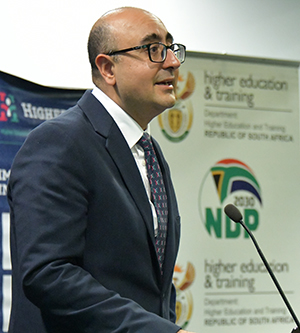
Prof Ramneek Ahluwalia, CEO of Higher Health
Presenting under the topic, Implementation of GBV Policy Framework in PSET, Professor Ramneek Ahluwalia, the Chief Executive Officer (CEO) of Higher Health, pointed out the holistic higher health interventions developed within South African universities. He said he believes that a tailor-made curriculum could assist in confronting GBV. Ahluwalia also mentioned the impact of peer education programmes within universities, and the prioritised mental health interventions running alongside substance abuse prevention. He further shared the interconnectedness of GBV, substance abuse, mental health issues and sexual reproductive health. ‘We have to tackle the cause of the problem first, and then the problem,’ he concluded.
Emphasising the issue of adding GBV on the curriculum, the Honourable Cassel Mathale, Deputy Minister of Police, added that new skills are needed for police officers. He said that he strongly believes that higher education can contribute immensely to the new knowledge produced to educate police officers to make a real difference in reducing GBV, and treat victims with dignity in the midst of their trauma. Mathale remarked that contributions from all stakeholders will make a huge difference.
The Honourable Buti Manamela, Deputy Minister of Higher Education, Science and Innovation, praised the kind of work the team has done so far. He stated that on an annual basis, the deputy ministers involved in this project should report on the protocols that have been implemented. ‘The report should focus on the role played by the police, judicial system and universities in order to fight GBV,’ he said.
Manamela also spoke against toxic masculinity in higher education. ‘We need to encourage the learning and unlearning of cultural traditions perpetuating GBV,’ he said. ‘We need to educate young men on our campuses.’
Manamela reiterated that all these interventions will help communities to have proper and broader conversations. ‘We need human capacity on our campuses,’ he said. ‘We need resources and information available to all stakeholders in curbing this GBV scourge.’
In conclusion, Manamela congratulated the technical task team for the progress of their work in universities. ‘We need to ensure that all of us contribute to zero tolerance of GBV at all our campuses,’ he said.
* By Lesego Chiloane-Ravhudzulo, Journalist, Department of Institutional Advancement
Read also:
New initiative aims to end GBV at SA universities (unisa.ac.za)
Publish date: 2023-05-11 00:00:00.0


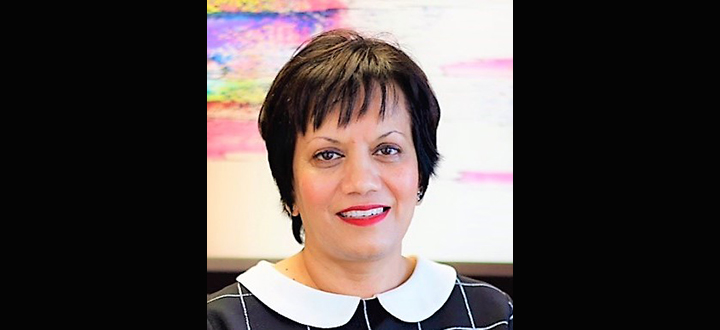 AI specialist to kick off Unisa’s Research and Innovation Week
AI specialist to kick off Unisa’s Research and Innovation Week
 How Medical Ethics and Health in Islam became a master’s journey for Rabia Mahomed
How Medical Ethics and Health in Islam became a master’s journey for Rabia Mahomed
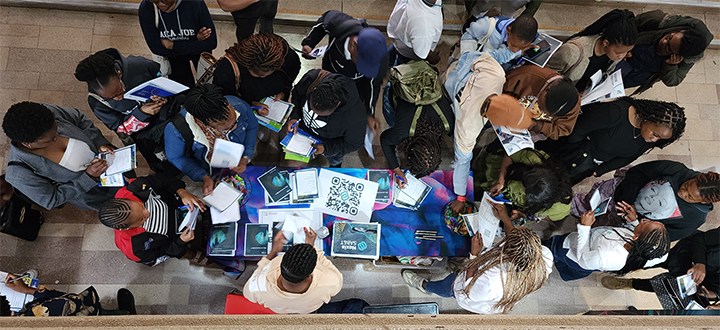 Employment boost for Unisa’s accounting students
Employment boost for Unisa’s accounting students
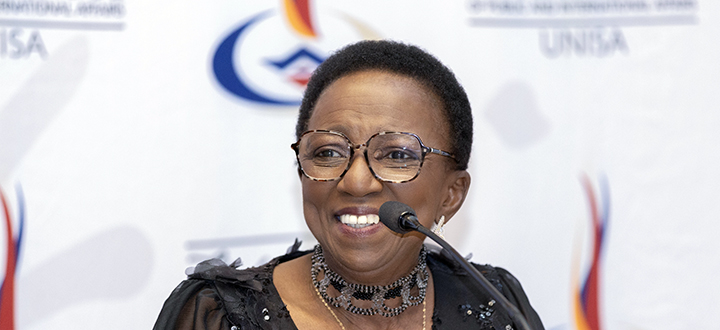 Life and legacy of Miriam Makeba celebrated at Unisa
Life and legacy of Miriam Makeba celebrated at Unisa
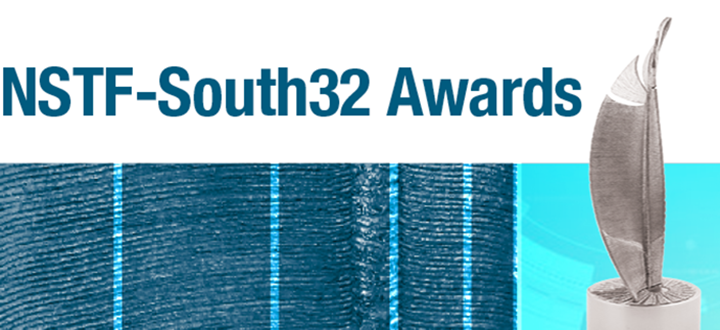 Unisa nominees gear up for the Science Oscars
Unisa nominees gear up for the Science Oscars